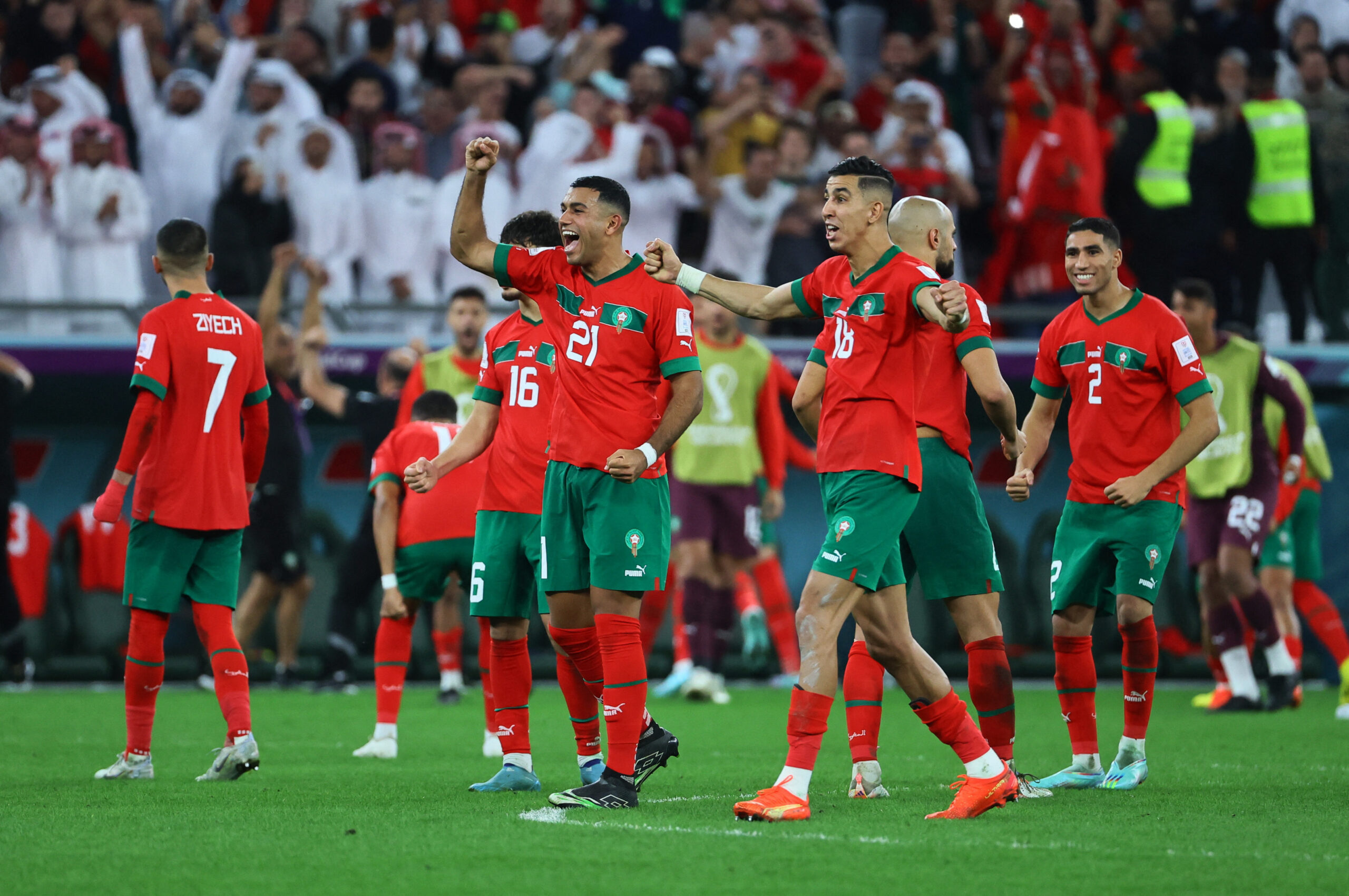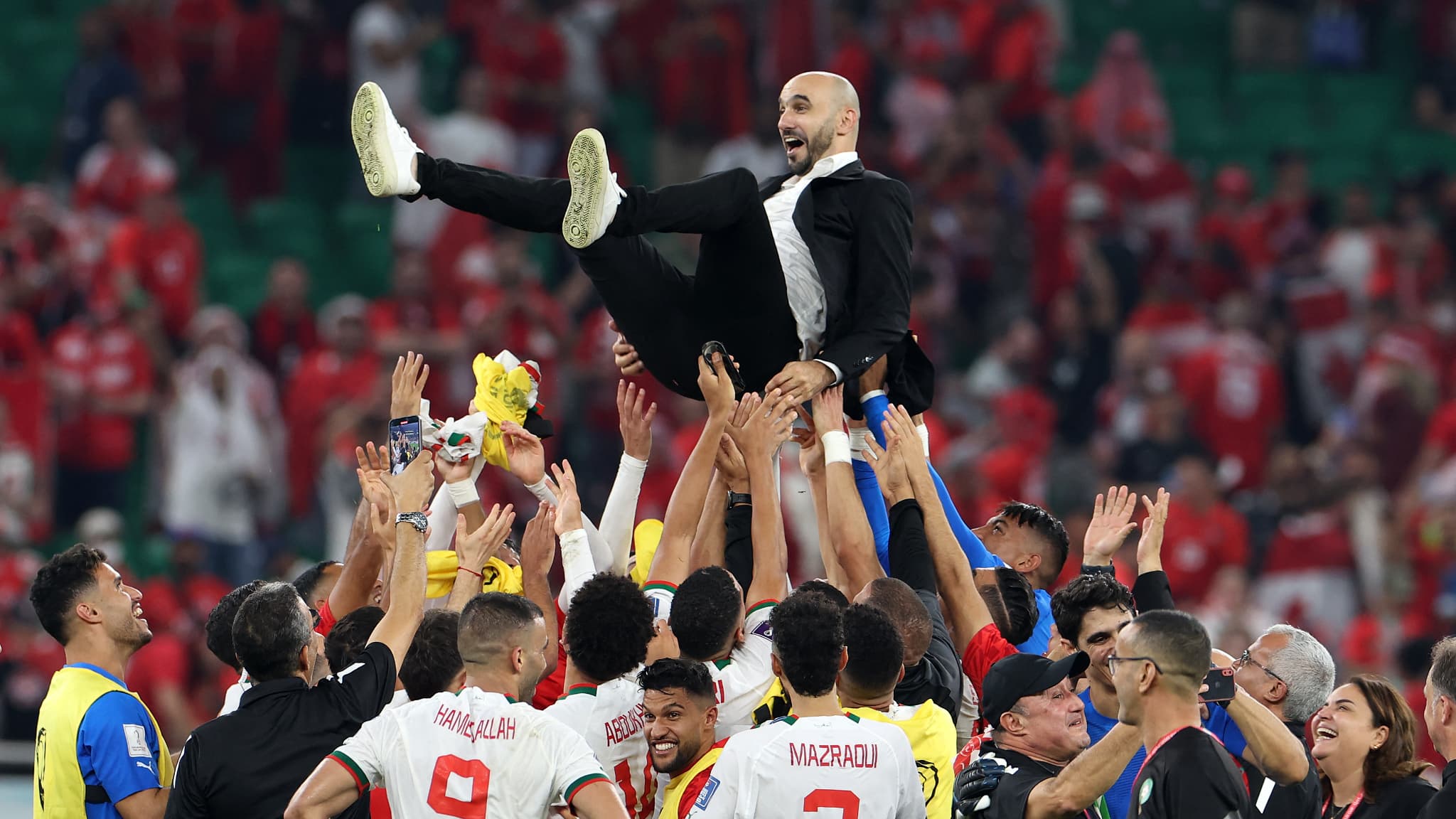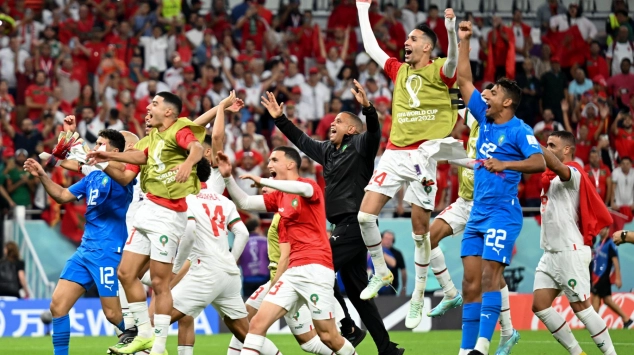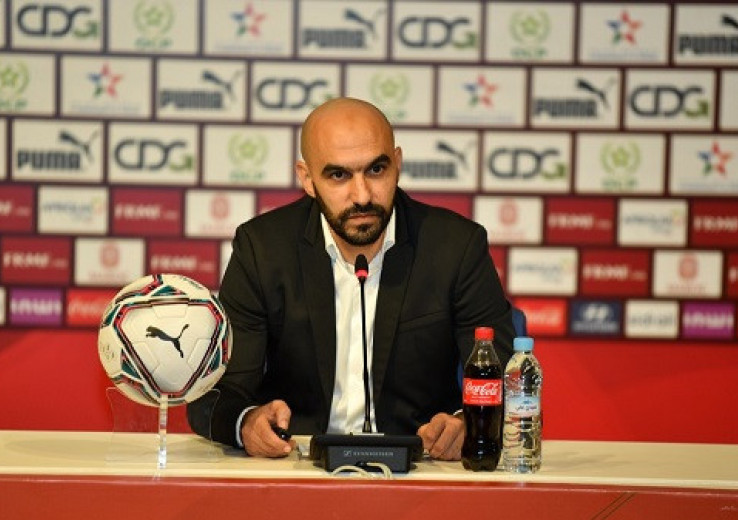Morocco’s Atlas Lions made history at the Qatar 2022 FIFA World Cup, being the first African and Arab team to have ever reached the semi-finals of the most popular sport event in the world. The reasons explaining this wonderful journey of the Moroccans are multiple and various and might vary from an expert to an analyst.
Yet, no one will dispute that the national team achieved an exceptional feat at the Qatar 2022 World Cup to the point that the whole world seemed under the spell of a phenomenon called “Morocco”. They imposed themselves on the most prestigious TV stations and made the headlines of newspapers across the world. In the process, Morocco mirrored the image of a country with an exceptional prestige, drawing its attractiveness and strength from its people and multi-faceted civilization.
The obvious reasons why Morocco stunned the world at Qatar FIFA World Cup:
New coach, winning mentality
The new coach, Walid Regragui, appointed in August in replacement of Bosnian manager, Vahid Halilhodžić, has succeeded in less than three months to instill in the squad a winner spirit. The 47-year-old Moroccan manager has managed to lift the spirit of the team. The former Spain’s La Liga player repeatedly indicated his ultimate objective was to change the Moroccan, African or Arab loser’s mentalities.
Morocco showed the change through their various games. The players were confident in themselves and did hold a candle to Belgium, Spain, Portugal. Regragui believes firmly that an African nation can grasp the world cup in a near future, 10 or 15 year down the road.
New play
As the players became confident in themselves, the North African country displayed a different football. Regragui introduced change in the way the team used to play. The entire team showed team spirit in defending goals. Ziyech and Boufal, the two maestros in the middle field orchestrated transitions and set up the strikers. The two were also seen proving support for the defense, unlike previous game prior to the competition. The team only suffered one single goal during the entire tournament.
Mental preparation
The winning mentality brought by the coach has also ushered in the players a sense of responsibility and commitment.
“Walid Regragui is the architect of all this… It’s been a long time since I met players who, when their physical capacity does not allow them to continue, throw their heart, their commitment and their soul to give even more,” Eduardo Dominguez, the fitness coach of the Atlas Lions told Spanish media Marca.
Hakim Ziyech and co. displayed a fighting spirit and supported one another during the tournament.
Crop of young talents groomed for the transition
Alongside big name like Ashraf Hakmi, Hakim Ziyech, Soufiane Boufal, the Moroccan public also saw low-key names like Bilal El Khannouss, Iliass Chaïr and Anass Zaroury. The young talents were given opportunities to garner experience and taste top level football.
Budding talents learned from the senior players and can be relied upon for the transition and to provide supplement support for future fixtures.
Domestic league represented
Morocco not only relied on a local coach for the world tournament, but also has leaned on its domestic league Botala D1, deemed among the leading domestic leagues in Africa, to supply the team with players.
Actually, the coach brought together, besides a constellation of diaspora stars playing for renowned teams such as Chelsea, PSG and Bayern Munchen, players who evolved in the national championship, and those trained since a young age at the Mohammed VI academy.
Regragui repeatedly referred in news conferences to the Mohammed VI Football Academy, which is part of the royal project to promote sports. This Academy has trained talented players who are currently playing in the national team, namely Youssef En-Nesyri, Azzedine Ounahi, Reda Tagnaouti and Nayef Aguerd.
In order to develop national soccer, the King has granted all means to sports facilities in Morocco, with the creation of many stadiums and training grounds.
Yahya Attiat Allah (left back), Badr Benoun (center-back) and Yahya Jabrane (middle filder), all from the domestic teams proved Regragui right for selecting them for the tournament.
Allah from Wydad AC offered assistance to Youssef En-Nesyri against Portugal to book Morocco’s place in the semi-finals.
29-yar old Benoun from Raja Casablanca put up a good show during the last 3 games of the team.
31-year old Jabrane from Wydad AC turned out a good substitute when Regragui tapped into him when called upon.
Sports specialists have taken an interest in the style of play of the Moroccan team and have sought the reasons for this success in the long-term and patiently built vision of the Mohammed VI Football Academy, its beginnings now being this plethora of talents that are part of the National Eleven.
Some others rather focused on talents trained abroad, speaking of a Moroccan team with a European style of play.
But beyond the divergence of approaches, all agree that the Moroccan team owes its attractiveness to the indisputable talents of its players.



